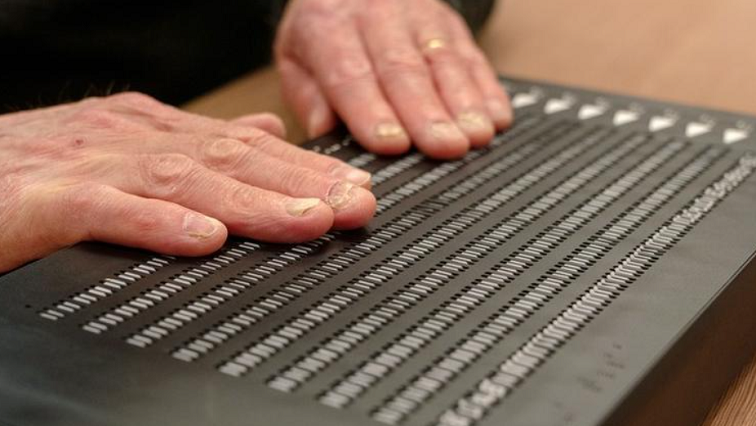The blind in South Africa are not seeing legislative amendments that could make their lives easier.
They say the Copyright Act of 1978 is not only discriminatory but it also limits their right to freedom of expression and information.
They say that the act makes it difficult for visually impaired people to convert books into accessible formats such as braille or audio.
Last year, the High Court in Pretoria declared the act unconstitutional and invalid. And they are now taking this matter to the Constitutional Court.
It could be a case of short-sightedness when it comes to the rights of visually-impaired people. When a visually impaired person wants to read a book, that book first needs to be converted into braille, a form of written language for people who are blind, or other formats like audio or digital to be readable to them.
Visually impaired persons have to apply to publishers for the right to convert the book.
Christo de Klerk, vice-president of BlindSA, who is also blind, knows too well how frustrating this can be.
“We sometimes have to wait very long for the copyright exemption. In fact, I had to abandon a year’s study because we could not get copyright permission for one of the books I would need. We never got copyright exemption for that.”
BlindSA has one of the largest braille printing services in the country.
De Klerk says in instances where they are lucky enough to get copyright permission to convert the book, there are serious cost implications.
“That cost can be from an average novel around, it could take around 28-days and cost around R24 000 for the master copy.”
Legal challenges continue
Last September, BlindSA with the help from Section27, a public interest law centre, challenged this in the High Court in Pretoria. The court found that the act was unconstitutional and invalid.
Section27 researcher Julia Chaskalson says the court also ordered that a special provision be added immediately to the Copyright Act, to allow visually impaired people to convert books into formats they can read.
She says in order for this change to the law to be made it has to go to the Constitutional Court and for visually impaired people it means enduring violations to their rights and freedom.
In 2015, Parliament introduced the Copyright Amendment Bill to update the outdated Copyright Act.
“But because other parts of the Copyright Amendment Bill are very highly debated, there have been multiple delays in the passing of the Bill. Last year, the president sent the Bill back to Parliament citing a number of constitutional concerns. But none of these constitutional concerns had anything to do with the exception for people with disability. That must be read in or added to the current act immediately so that blind people do not have to wait to have permission to convert books into braille.”
Section27 and BlindSA are now pinning their hopes on the Constitutional Court.
De Klerk hopes his crusade against the Act which he began in 2005, will finally be won.
“We have two libraries in South Africa for blind people, and together they have 30 00 books. There is an international digital library of books in accessible format. They have over a million books. But we do not have access to over half of those because of the Copyright Act. So, if we win this case, we will soon have access to over a million books instead of a 30 000.”
The Constitutional Court case is scheduled for the 12th of May, and may well be an eye-opener.


